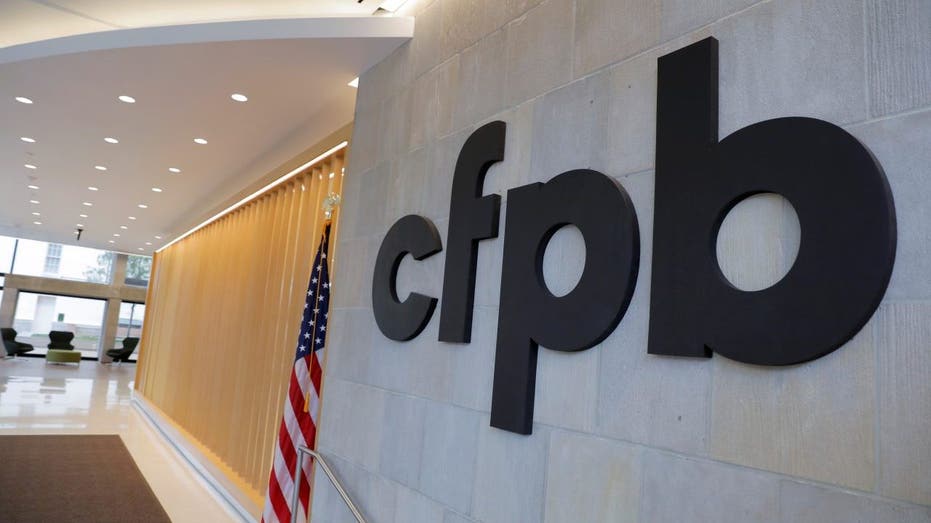Banking industry pushes back on CFPB's warning over use of AI chatbots
One expert says the Consumer Financial Protection Bureau appears to be setting itself up to regulate AI
ChatGPT mimicking humans is the greater danger: Frances Haugen
Beyond the Screen co-founder Frances Haugen discusses the emergence of ChatGPT and the ethical trap of advanced artificial intelligence on The Claman Countdown.
The Consumer Financial Protection Bureau (CFPB) issued an advisory Tuesday warning of potential risks associated with financial institutions using artificial intelligence-powered chatbots for customer service, as the automated tools surge in popularity.
But data from the banking industry, which has long utilized chatbots and AI, indicates Americans are overwhelmingly happy with the customer service experience at their lending institutions, and one expert says the CFPB's latest "advisory" suggests it is trying to overstep its bounds.

The CFPB issued an advisory Tuesday warning about the risks associated with financial institutions using AI chatbots for customer service. (iStock / iStock)
The CFPB's "issue spotlight" said the agency "has received numerous complaints from frustrated customers trying to receive timely, straightforward answers from their financial institutions or raise a concern or dispute."
The agency said roughly 37% of Americans interacted with a bank's chatbot last year, and that percentage is projected to grow as more financial institutions adopt the tools.
"To reduce costs, many financial institutions are integrating artificial intelligence technologies to steer people toward chatbots," CFPB Director Rohit Chopra said in a statement. "A poorly deployed chatbot can lead to customer frustration, reduced trust, and even violations of the law."
The CFPB acknowledged that financial institutions have been using chatbots for nearly a decade, but said the emergence of advanced AI models like ChatGPT presents new challenges.
The advisory warned that the risks associated with using AI chatbots in lending include noncompliance with federal consumer protection laws, diminished customer service and trust, and harm to consumers.

The CFPB's latest issue spotlight focused on potential "challenges" with the use of AI chatbots in the banking industry. (REUTERS/Andrew Kelly / Reuters)
The watchdog said it is "actively monitoring the market, and expects institutions using chatbots to do so in a manner consistent with their customer and legal obligations." The CFPB also encourages banking customers who "are experiencing issues getting answers to their questions to due a lack of human interaction" to submit a complaint with the agency.
But recent data from the American Bankers Association indicates the vast majority of American consumers are very happy with their banking experiences, at least as of last fall.
The October survey found 95% of Americans with a bank account rated their bank's customer service as "excellent," "very good," or "good," and 9 in 10 said they were "very satisfied" or "satisfied" with their primary bank.
"America’s banks support responsible innovation that benefits consumers and offers the safeguards that come with a banking relationship," ABA senior vice president Brooke Ybarra told FOX Business in a statement in reaction to the CFPB's report. "As technology reshapes consumers’ needs and expectations, tools like chatbots offer an additional medium to help banks expedite the customer experience."
MONEY KEPT IN PAYPAL, VENMO, OTHER PAYMENT APPS LESS SAFE THAN IF STORED IN BANKS, CFPB WARNS
"These innovations complement more traditional interaction with a customer service representative which remains an option," Ybarra continued. "There are many ways consumers can communicate with their bank, and recent surveys show the overwhelming majority of customers rate their bank’s customer service highly."
The Independent Community Bankers of America pushed back on the CFPB's report, too.
"The nation's community banks are built on a relationship-based business model and work closely with their customers to ensure any and all questions are answered quickly and accurately," Anne Balcer, ICBA's senior executive vice president and chief of government relations and public policy, said in a statement.
"Community bank customers have access to bank employees in-person, via email or by phone. Quite often, customers have the direct phone number of the branch manager and even the community bank CEO," Balcer added. "[C]ommunity banks manage risk daily, and as such, comply with all regulations, which include those surrounding technology."
The CFPB – the brainchild of progressive Sen. Elizabeth Warren – regularly puts out advisories targeting industries over potential consumer issues, and has the power to issue millions in fines for companies it determines have violated federal consumer protection laws.

The creation of the CFPB is a signature achievement of Senator Elizabeth Warren, a progressive Democrat from Massachusetts. (Al Drago/Bloomberg via Getty Images / Getty Images)
John Berlau, the Competitive Enterprise Institute's director of finance policy, says the CFPB's latest issue spotlight could be a sign it is trying to wade into AI regulation, which is beyond its authority.
"It appears that the CFPB, which has no particular expertise in AI and was not given authority by Congress for oversight of the field, is attempting to set itself up as an AI regulator," Berlau told FOX Business. "The CFPB complains that AI may lead to ‘diminished customer service and trust,’ but levels of service are matters that can and should be handled by consumers."
"A consumer is perfectly free to patronize a venue that utilizes more personal service if he or she is unsatisfied in dealing with AI," he explained. "And a financial services firm providing deceptive or fraudulent information through AI should face the same penalties as those that may defraud and deceive through human employees."
GET FOX BUSINESS ON THE GO BY CLICKING HERE
"In short," he added, "the CFPB needs no extra regulatory power over financial firms that utilize AI chatbots."





















